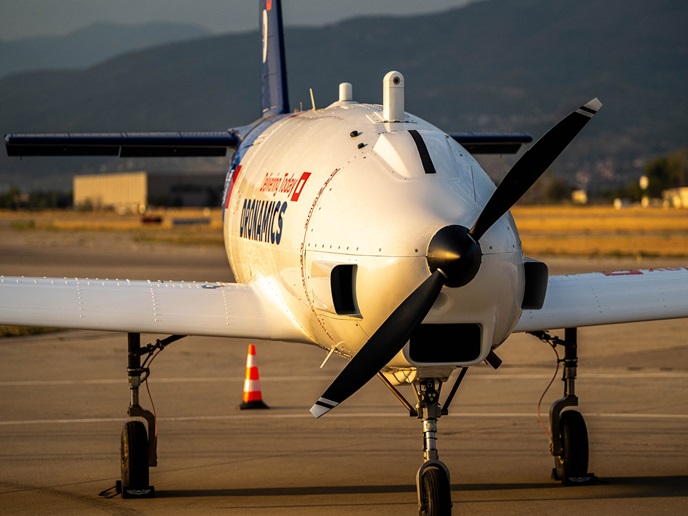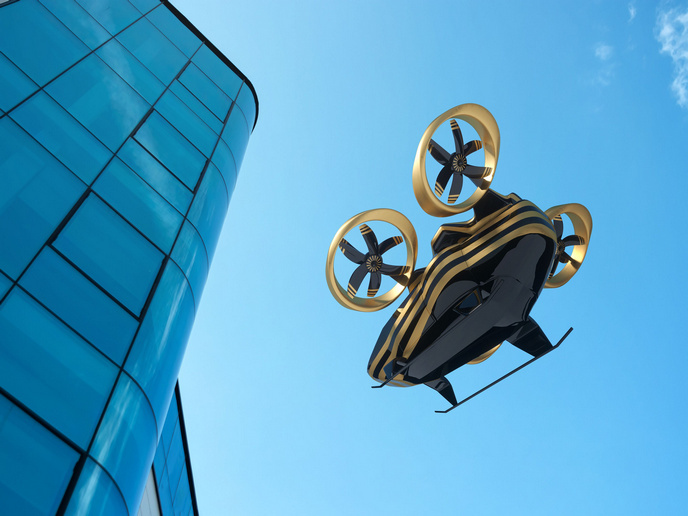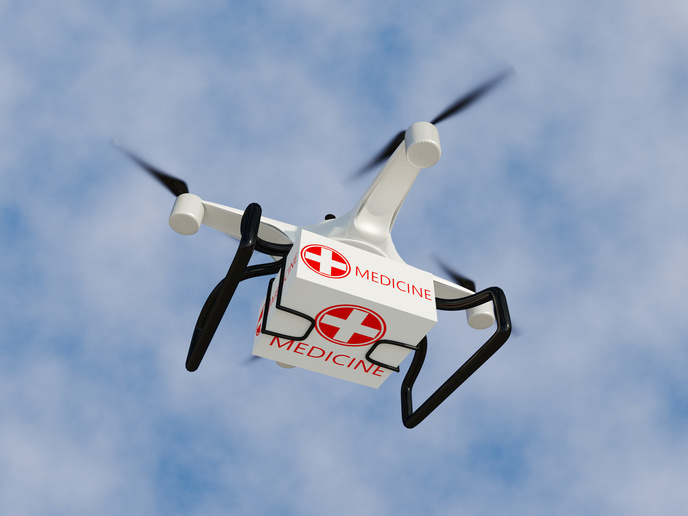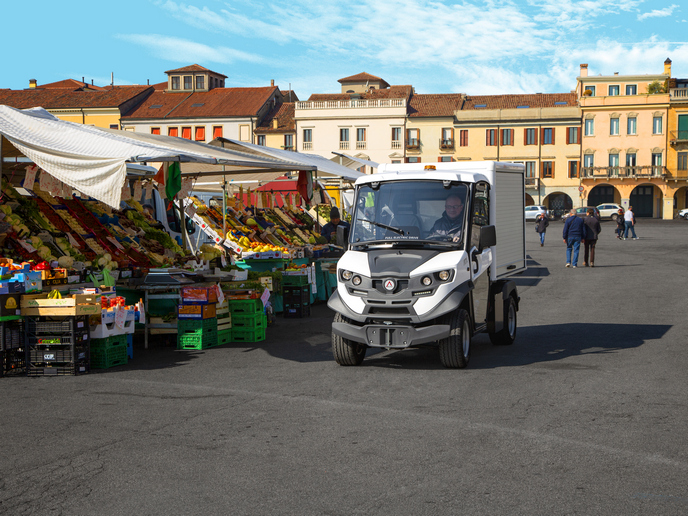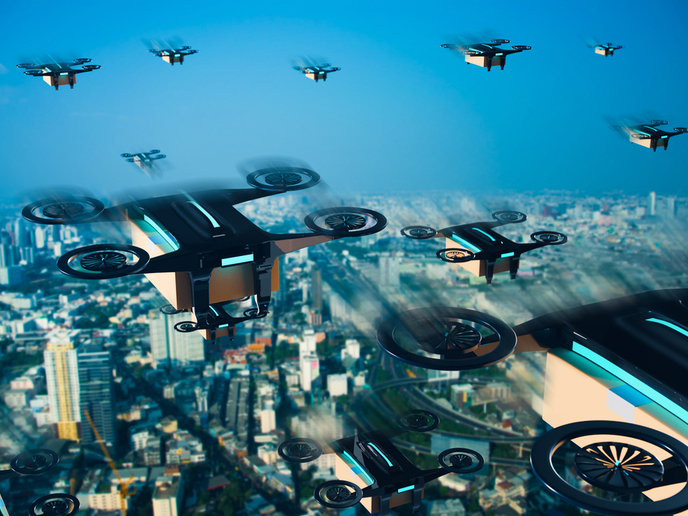World’s first cargo drone airline prepares for take-off
Rapid and reliable logistics help boost economic growth and improve quality of life for citizens. While in principle the skies could offer the best option for transporting goods, air freight only accounts for 1 % of freight transport worldwide, largely due to the cost of building and operating traditional aircraft and infrastructure. Spotting a clear market opportunity, the Dronamics project has harnessed drone technology to offer the first cross-border middle-mile cargo deliveries. “We believe that everyone should have access to rapid and reliable logistics. Our cargo drones will open up the skies to communities and businesses that currently don’t use air freight,” says project coordinator Svilen Rangelov, co-founder and CEO of the project’s host company, also called Dronamics.
Flying delivery vans
As a capital-intensive and highly regulated industry, innovating in the commercial aviation space is challenging. Consequently, most new aircraft are iterations of existing designs. Disrupting this trend, Dronamics has developed a new type of remotely piloted aircraft, engineered only for cargo and built to reduce production and operation costs. “Drones offer a tremendous opportunity to deliver goods more efficiently, particularly in remote or hard-to-reach regions. They can significantly reduce delivery times by flying directly between two points that aren’t hubs, getting cargo closer to businesses and consumers, faster,” explains Rangelov. While most drones carry small loads, essentially replacing ‘last-mile’ couriers, Dronamics has developed high-payload, long-range drones built specifically for ‘middle-mile’ cargo. Creating what Rangelov describes as “a flying delivery van”, these drones could deliver between European towns and cities as apart as Sofia, Bulgaria and Porto in Portugal, for example. “Our 16-metre wingspan cargo aircraft, the Black Swan, carries up to 350 kg or 3.5 cubic metres for up to 2 500 kilometres, needing only 400 metres to land and take off. This makes it suitable for the 50 000 smaller regional airports and airfields worldwide,” notes Rangelov. “Compared to traditional air freight, our solution offers up to 80 % time savings and 50 % cost savings. Shortening the travel distance and being fuel-efficient, it also saves up to 60 % of CO2 emissions.” While currently equipped with Rotax propeller engines widely used in aviation, Dronamics is preparing for the day when more sustainable options such as hydrogen-fuelled engines become feasible. The Black Swan is piloted remotely from a land-based cockpit, by commercial aviation pilots experienced in route planning and risk management. While most of the flights are pre-planned with pilots only monitoring operations, the pilots can take over if needed. The project team has been testing the Black Swan since 2017, starting with quarter-scale models incorporating avionics systems that mimic full-scale aircraft, before developing, testing and optimising larger prototypes. European Innovation Council (EIC) funding has helped Dronamics run a continuous test programme of the full-scale aircraft, which will soon include a third and shortly after, fourth, Black Swan iteration, designed and built at Dronamic’s Sofia-based R&D centre.
The first European droneport
The Dronamics company is both a technology manufacturer and an airline, selling capacity in cargo holds optimised for e-commerce parcels and fast-moving consumer goods, alongside time-sensitive deliveries such as pharma items or perishable products. Initially targeting existing infrastructure, the team is close to establishing the first European droneport, with details to be revealed soon. “Ultimately we want to establish droneports globally as cargo gateways, especially for areas underserved due to geography or infrastructure, including the 20 million people in Europe living on islands,” adds Rangelov. Dronamics is the first cargo drone airline to obtain designator codes from the International Air Transport Association (IATA) and International Civil Aviation Organization (ICAO), putting it on a par with traditional airlines. Flying in shared airspace, the drones are also subject to European Union Aviation Safety Agency (EASA) and local Civil Aviation Authority (CAA) regulations, with the Black Swan even assigned its own call sign. “We are the most advanced player in this area, giving Europe a rare advantage in the strategic sector of advanced air mobility and logistics. This is a unique chance for Europe to be an innovation front runner,” remarks Rangelov.
Keywords
Dronamics, cargo, air freight, drone, logistics, remotely piloted aircraft, middle-mile, CO2 emissions, e-commerce



